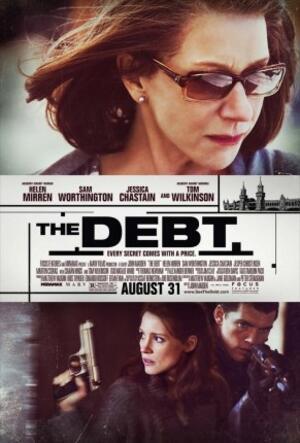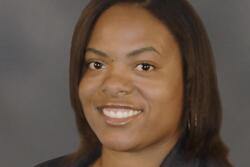"The Debt": Mothers and daughters, secrets and truths
When is the last time you saw an action-packed film with a mature woman who must reckon with her own history as the main protagonist? This sort of screenwriting doesn’t come around too often. The Debt is a thriller by genre, but a rare one with a woman’s crisis of conscience at its heart.
The main character, Rachel (Jessica Chastain and Helen Mirren in a split role) is a former Mossad agent, now in her late fifties, who has to revisit a high profile mission with which she was involved thirty years earlier. Her own proud daughter has written a book documenting her mother's daring achievement. But the truth of the matter is not, as it turns out, the same as the official one. In fact, the now retired agent has all along been taking credit for something she did not do.
The official version has for all these years conferred upon Rachel the status of a hero in an insular, hero-worshipping Israeli society. While enjoying the prestige, she has clearly sacrificed any inner sense of wholeness or peace. She has been sworn by her fellow agents never to divulge the secret (i.e. what really happened). When sharing book promotion events with her proud daughter, Rachel can hardly contain her inner tension. We can see how her festering secret is tearing apart the inner lining of her life. But the consequences of telling the truth may be even more disastrous.
As events begin closing in on Rachel, it may no longer be possible to avoid a shattering confession. As a woman her age, I can fully empathize with her dilemma. Surely, no longer living with a lie will be an immense relief. Yet there is much to dread: What will history make of her now? Will it be as quick to condemn her as it once was to idealize? How will her contemporaries treat her once the truth is known? Will they be sympathetic to the very good reasons she had decades ago for the decision she and her two co-agents made under considerable duress? And most painful of all, how will this affect her relationship with her only daughter, a sincere young woman who has devoted years of her life to telling what she believes to be a true account of her mother’s heroism?
The film also raises other questions. Of what in our lives are we entitled to feel proud? Is actual achievement the only source of merit? Or might self-worth also arise from an honest reassessment of the past? How much do we value the courage to live with our limitations? Might the capacity to learn from our failures also be a true point of pride? What is the measure of a woman who later in life comes to terms with a former willingness to falsify history? Is she necessarily diminished by a new truth that robs her of a false claim to glory?
What happens when a woman has to deal with her own daughter’s idealized version of her mom’s life? In circumstances less dramatic than Rachel’s, there may be no harm in letting a distorted version of history remain unchallenged. But I know several women who decided they would rather be known for who they were – and more precisely, who they were not – than be exalted for fictions whose fabrications ultimately distanced them from their loved ones.
One woman had always told her daughter that a first husband (who was not the girl’s father) died young, rather than admit that he had left her for another woman after years of abuse. Another woman told her daughter she gave up a promising career out of devotion to new motherhood when in fact she had suffered a nervous breakdown. And a third friend of mine never wanted to admit that she hadn’t graduated from an Ivy League college because leaving school was the only way to get away from an oppressive family.
In each case, where a less flattering but franker version of some past history was divulged, the disclosure brought mom and daughter closer. Daughters admired their moms for having to put up with real life obstacles to happiness and self-realization. They sympathized with their mom’s needs to tell a less painful version of the past. All these women found the truth to be fully humanizing even if it meant crossing a line or two off a past resume. In that newly-cleared space, oddly brightened by vulnerability, women not only find more of themselves, they also find one another.






